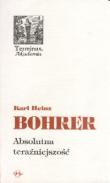
|
« Prawo "Under God" or not? On 23 March 2004 Michael Newdow argued his case for the unconstitutionality of „under God" in the Pledge of Allegiance before the U.S. Supreme Court. I watched the news report and thought this: As an Atheist and a Freethinker, I hope the U.S. Supreme Court does its duty to preserve, protect, and defend the U.S. Constitution by ruling „under God" is a violation of the law known as the First Amendment. Then reality bit, and I had to predict the USSC will either deny Newdow has standing to pursue litigation on his daughter's behalf, or it will proclaim the phrase has become a tepid, ceremonial phrase with its religiosity too diluted to be unconstitutional. Most likely their ruling will be the former because it would liberate them from having to write anything for or against „under God" to justify or protest a for or against decision. If they go with the latter, then they truly are way too isolated from contemporary U.S. culture, because all they have to do is peek out the front doors of the USSC building to see the living proof of the phrase's religiosity in the form of all the Christians praying and preaching on the building's steps about the necessity of maintaining this acknowledgment of Christianity's three-part deity. The unconstitutional religiosity of the phrase is also thoroughly proven by all the speeches about it during the process when it was added to the Pledge in 1954. All those politicians from Eisenhower on down to the rookies in Congress were not engaged in adding some tepid ceremonial embellishment to the Pledge. There's a lot of talk by both sides about what the Founders intended concerning separation of government and religionism. Both sides need to know this: it doesn't matter what the Founders intended if what they intended does not preserve, protect, and defend freedom. Lots of Founders did believe the nation they had created was a Christian nation. The only separation the majority of them intended was between only the federal government and religionism, thus each state was free to engage in entanglement or separation. Many of them represented deeply entangled states and fully approved of their states' entanglement. That was why the laws known as the Bill of Rights were intended to control only the federal government's behavior. Later it was understood that preserving, protecting, and defending freedom in the U.S. meant the Bill of Rights had to also control the behavior of state and local governments. The Founders' intention was wrong, and that wrongness was corrected with another amendment. The Founders had other wrong intentions that were included in the Constitution and required later correction. The Founders, even the very best of them, did not fully understand what was required to make the U.S. a land of the free. It required time and often very hard, bitter experiences for the wrongness to be recognized and corrected. Two examples are slavery and women's rights. The Founders intended the U.S. to be a slaveholding nation and for women to be second-class citizens ruled by male relatives or husbands. These intentions, once laws in the founding document, had to be rejected and corrected by amendments because finally it was recognized that they did not preserve, protect, and defend freedom. The Founders did have one intention that was first before all others and the justification for the Revolution. It was also the promise to every person who supported or fought to win the Revolution. It was their supreme intention, and the only one that should have important cultural influence today. Their most glorious, most right intention was to dedicate the U.S. to being a land of the free. That noblest of their intentions is the only one that deserves undying commitment from citizens, legislators, judges, governors, presidents, and USSC Justices. All their other intentions have to be measured against their supreme intention, and all the ones that fail to preserve, protect, and defend freedom have to be ignored or corrected if still active as laws. Therefore the first thing to ask about „under God" is this: does it preserve, protect, and defend freedom, which is essential if all people are going to be able to pursue happiness throughout their lifespans? The answer for „under God" is „No!". There it is. If religionists want to believe the U.S. is a nation under an imaginary supernatural entity-Christianity's three-part deity, Allah, Vishnu, Santa Claus, and so on — that's fine with me. Let them, when they say the Pledge of Allegiance, personally add an „under (name of supernatural entity)" every time. Nothing wrong with that. They can finish it off with "amen" or „praise the Lord" or „Hosanna Heysanna Sanna Sanna Ho". Who cares? I don't. I would laugh, but I wouldn't care. What is wrong, because it violates the law known as the First Amendment, is for the government to make the Pledge a mandatory public school event, then include in that mandatory event a phrase that tells children and adolescents that a supreme supernatural entity exists and that in some way the U.S. is under it, either because it rules the U.S. in some mysterious way or because U.S. culture is supposed to be a religious culture dedicated to serving and worshipping this supernatural entity. That is government being entangled in religionism. That is government linking such beliefs to patriotism, thus proclaiming Atheists and even any religionists who object to the entanglement to be unpatriotic. Making the participation in the event voluntary does not lessen in any way the fact that it is an official public school event. In Texas it is an event required by law, which of course only increases the importance of the event, the seriousness of the message, and the entanglement in religionism. This is an intolerable insult to Atheists and those religionists who are dedicated to keeping government and religionism separated. It becomes more intolerable for those of us who served the U.S. in the military, which has always been one of the most honored ways to practice the patriotism a person has. „No Atheists in the foxholes" is as big a myth as Santa Claus, Christianity's three-part deity, or any of the other imaginary supernatural entities that humans have worshipped and now worship. In 1967 I could have legally dodged the war in Vietnam. Being patriotic and also believing in the rightness of the war at that time, I chose to serve in the U.S. Marine Corps. I also had other important reasons for enlisting, but those two definitely contributed to the decision I made. Eventually I served nine years in the Corps. One year I spent in Vietnam. I wasn't in much danger in Da Nang, but it wasn't my decision to serve in a unit that was not exposed to much danger. I was an Atheist when I went it. I remained an Atheist even though there were two or three times in Nam I could have been killed or seriously wounded. When I got my honorable discharge I was an Atheist. With the exception of Colin Powell and John McCain, it's practically impossible to find among these god-fearing, Jesus-loving, flag-waving, Pledge-reciting Republicans of the Vietnam generation any who made the same patriotic choice I did. These war-dodgers and the religionists who support them want to imply with „under God" I'm not patriotic? It pisses me off. It especially pisses me off when these war-dodgers and the religionists who support them use „under God" in the Pledge as proof the U.S. is a Christian nation, thus Atheists, if they don't like it and can't shut up about it, should just go find some other country to live in. If the USSC was willing to receive evidence of the intense religiosity of „under God", they ought to invite the various Atheist and Secular Humanist groups to send in copies of the letters and e-mails from religionists that never cease coming in. They would see „under God" used often as a weapon against us. That is why „under God" does not preserve, protect, and defend freedom. When government is entangled in any way in religionism, that entanglement, however slight, never preserves, protects, and defends freedom. There it is. This is another objection to „under God" that ought to be as important as any other objection: „under God" is an insult to a First World nation in Western Culture's 21st century. It's as ridiculous as „under Santa Claus". Why? Because believing in imaginary supernatural beings is like believing in Santa Claus, and nothing can change that. It doesn't matter if the belief in a supernatural entity is held by dozens or hundreds or thousands or millions or billions. No amount of faith can make true what is not true. It doesn't matter if the belief is backed up by a politically powerful, wealthy national or international organization. No amount of money or power can make true what is not true. It doesn't matter if the belief is enforced by vicious terrorists willing and eager to murder unbelievers who dare to publicly display their unbelief. No crime can be atrocious enough to make true what is not true, and no body count can be high enough to make true what is not true. All the reasons why Santa Claus doesn't exist are exactly the same reasons why all other supernatural entities do not exist. This is a fact of life: there does not exist a god for the U.S. to be under. There it is, and there it shall always be. * Published in the 2004 May/June issue of the American Rationalist ©
« Prawo (Publikacja: 01-06-2004 )
str. 3429 |
|||||||||||||||||||||||||||||||||||||||||||||||||||||||||||||||||||||||||||||||||||||||||||||||||||||||||||||||||||||
| [ Regulamin publikacji ] [ Bannery ] [ Mapa portalu ] [ Reklama ] [ Sklep ] [ Zarejestruj się ] [ Kontakt ] Racjonalista © Copyright 2000-2018 (e-mail: redakcja | administrator) | ||




